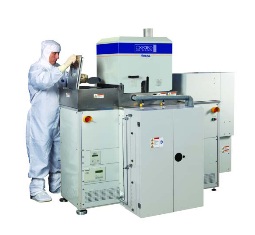Oxford Instruments, one of the world’s key manufacturers of plasma etch and deposition systems, is pleased to announce that it has been chosen by Chalmers University of Technology in Sweden to supply a FlexAL ALD system for installation in their state of the art cleanroom.

The Oxford Instruments FlexAL systems provide a new range of flexibility and capability in the engineering of nanoscale structures and devices by offering remote plasma ALD processes and thermal ALD within a single ALD system.
Atomic layer deposition (ALD) is a true "nano" technology, allowing ultra-thin films of a few nanometres to be deposited in a precisely controlled way. The two defining characteristics of ALD - self-limiting atomic layer-by-layer growth and highly conformal coating - offer many benefits in semiconductor engineering, MEMS and other nanotechnology applications. The FlexAL system delivers maximum flexibility in the choice of materials and precursors- low-temperature processes enabled by plasma ALD; low damage maintained by the use of remote plasma; and controllable, repeatable processes via recipe-driven software interface.
Dr Mats Hagberg, Process Equipment Specialist at the Nanofabrication Laboratory, Chalmers University of Technology in Sweden says, “We have seen an increased need for very thin, high quality films of precise thickness in our nanotechnology research. Introducing Atomic Layer Deposition capability to our process laboratory will make it possible for us to take our terahertz, microwave, and quantum components research to a new level. FlexAL was the ALD system on the market that best matched our technical specification.”
Chris Hodson, ALD Product Manager at Oxford Instruments says “TheFlexAL ALD tool offers the ideal platform for research and development into many new application areas, and has the flexibility to process various materials and handle a wide range of substrates. Our excellent process applications team and global service support ensure that our customers are supported in every respect and can count on their Oxford Instruments systems for maximum uptime and reliability.”